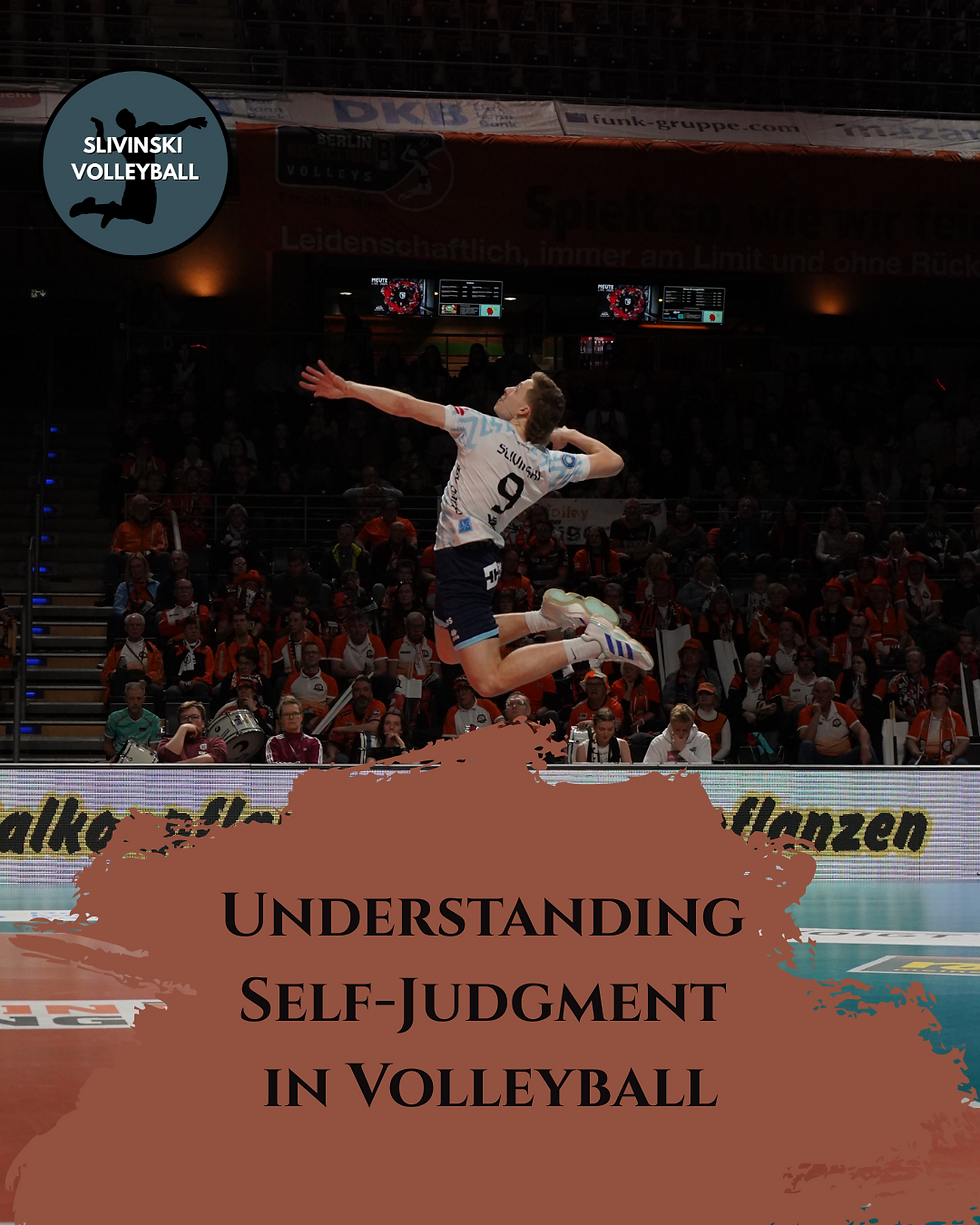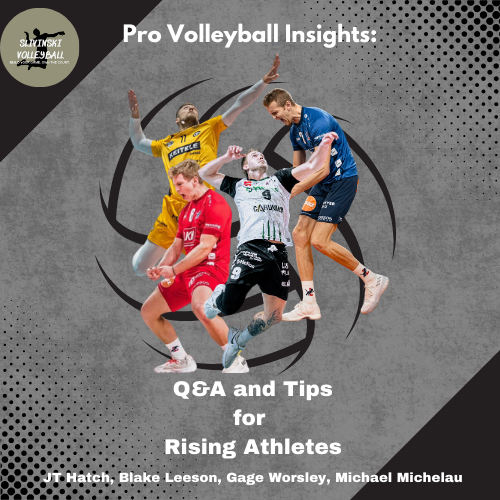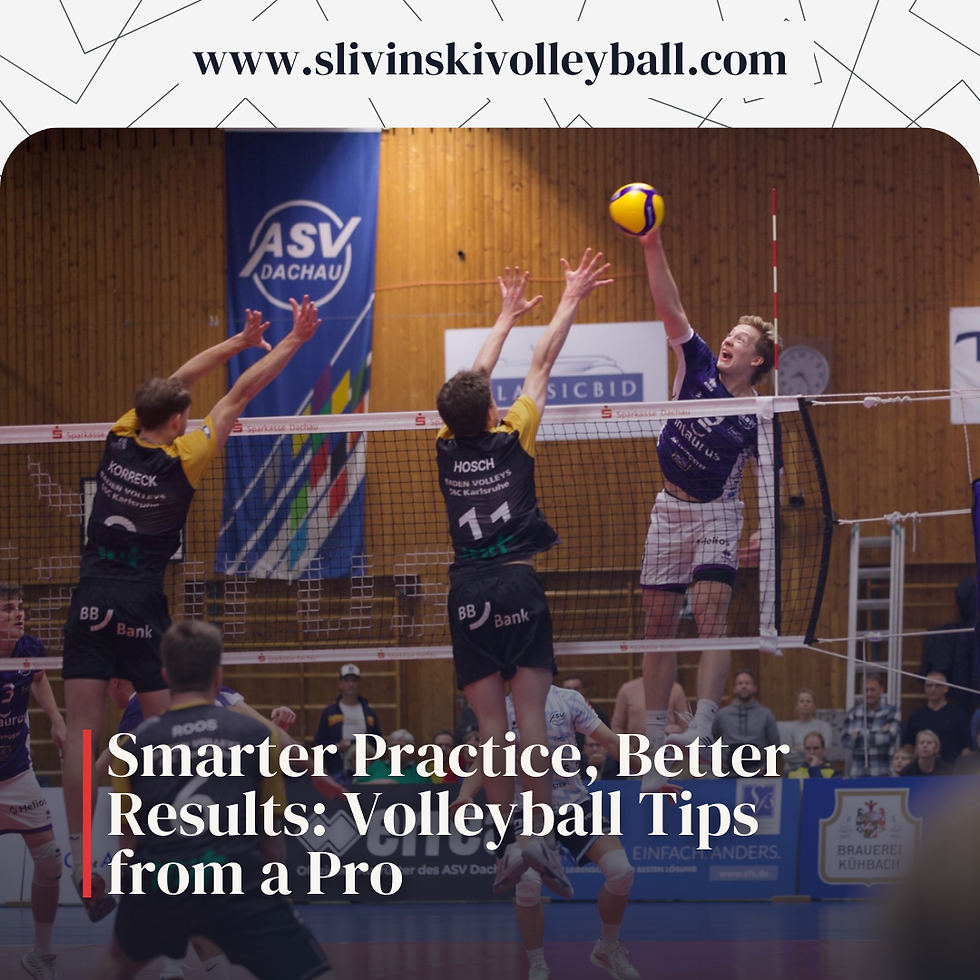The Truth About Private Volleyball Lessons: A Pro Player’s Perspective
- Matt Slivinski

- Jun 24
- 3 min read

As a professional volleyball player and coach, I’ve seen firsthand where private lessons shine—and where they fall short.
Let’s get straight to the point: private lessons are one of the most powerful tools for developing technical skill in volleyball. But they’re not a magic bullet. They’re not always fun, and they won’t teach you everything. So let’s break down where private lessons are most effective—and where they aren’t.
Private Lessons Are Best for Developing Technical Skills
If you're watching high-level women's volleyball, you'll definitely notice how technically sound the play is—clean platform work, sharp setting mechanics, consistent footwork. That’s because from a young age, girls often spend more time in environments that emphasize the fundamentals.
Boys volleyball, in contrast, often leans more on physical ability. Some athletes grow tall, jump high, and hit hard early—and for a while, that’s enough to get by. But this reliance on physicality can lead to gaps in skill development. Many athletes reach college or even the pro level without a strong technical foundation.
That’s where private lessons can be a game changer.
During the high school years—ages 14 to 18—players are growing rapidly, both physically and mentally. It’s a critical window for locking in muscle memory. A good private coach can help athletes build the right habits before the wrong ones get cemented.
And for athletes who aren’t as physically gifted, a strong technical base is everything. It’s what allows undersized players to compete at the highest levels.
Take a player like Benjamin Toniutti, the former French national team setter. He’s barely 5'11"—short for the men’s game—but he’s led top teams in the Polish PlusLiga because of his intelligence, technique, and unreal consistency. He’s not out-jumping anyone—he’s out-thinking and out-executing them.
When Private Lessons Aren’t the Best Option
1. Brand New Players (Especially Under 12)
If a kid is just starting out, private lessons often aren’t the right fit. For most kids under 12, volleyball should be fun and playful. One-on-one sessions can feel intimidating, and they’re not always fun.
The best way to learn at that age? Play.
Put kids in a group. Let them move, laugh, and make mistakes. At that stage, it's about developing a love for the game and learning the basics in a pressure-free environment with friends.
2. Teaching Volleyball IQ
You can’t teach game awareness in a vacuum.
Volleyball IQ is your ability to read the court, recognize patterns, and make quick decisions—whether it’s a setter seeing a late block commit or a libero shifting the passing line based on a server’s toss. That comes from live reps, trial and error, and high-level team practice.
Sure, a coach can talk about IQ in a private session—but it’s just theory until an athlete applies it in real-time.
The smartest players I’ve met weren’t always the tallest or the strongest. They were the ones who had to be smarter—because they couldn’t rely on raw power. They had to master timing, strategy, and precision.
I learned this the hard way when I began playing professionally. I had the physical tools—height, jump, and power—but I faced players who didn’t jump as high as me and weren’t as tall… and they were better. Why? Because they played smarter. They read blockers. They varied their attacks. They communicated. They made great decisions consistently.
That’s when I realized: IQ wins games at the highest level. And private lessons can’t replicate that.
So, Who Should Do Private Lessons?
If you’re in high school—especially if you’re a male athlete still growing into your body—private lessons are one of the best things you can do to develop strong mechanics and build repeatable habits.
Those years between 14 and 18 are critical. A good private coach will:
Correct your form
Help you feel the right movements
Build the muscle memory that separates college athletes from weekend warriors
But private lessons aren’t the only thing you need.
The athletes who truly rise above their peers are the ones who combine:
Focused team practices
Game experience
Intentional private training
Off-court film study
Proper recovery and strength work
If you can attack all five, you’ll outgrow your competition. That’s exactly what I help my athletes do.
Final Word
Private lessons aren’t for everyone. But if you’re serious about your game—and ready to sharpen your technique and maximize your potential—they can take you to the next level.
If you’re in the Chicagoland area and want to build your foundation the right way, check out my private training page or DM me on Instagram @slivinski_volleyball.
Let’s get to work.



Comments